#the one ring
Text
“You suffer. I see it day by day.” IMO, this is a very underrated line of Boromir’s in the film, because it shows not only his observant and perceptive nature, but more importantly, his empathy. He knows exactly what it’s like to constantly carry a heavy burden alone on your shoulders. On this level, he actually understands Frodo deeply, and genuinely wants to help him. He really is a well-meaning friend. This particular line isn’t in the book, but it captures Boromir’s essence very well and I think Tolkien would’ve approved of it.
#lotr#jrr tolkien#lotr books#lord of the rings#lotr movies#boromir#frodo baggins#lotr boromir#lotr frodo#the one ring#lotr fotr
71 notes
·
View notes
Text
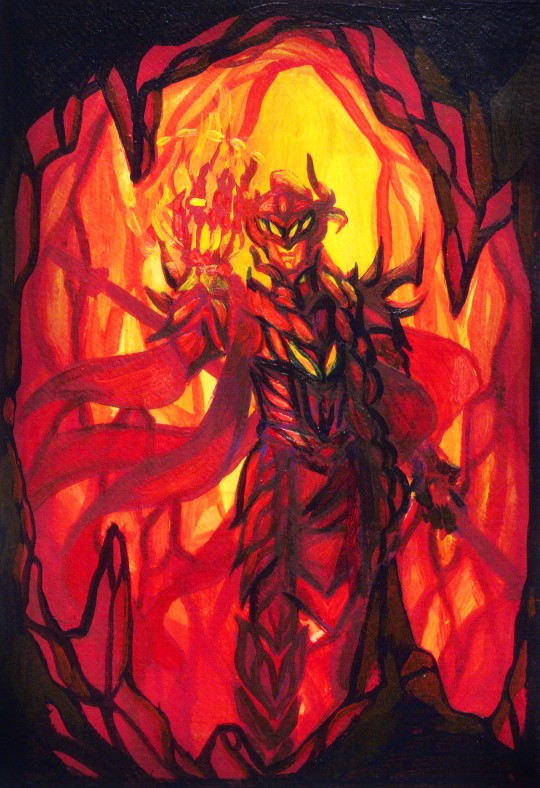
But they were all of them decieved, for another ring was made.
#the forging of the one ring#sauron#mairon#tolkien#jrrt#the lord of the rings#the silmarillion#the rings of power#the one ring#painting#fanart#my art
20 notes
·
View notes
Text
Rereading the Lord of the Rings series recently, and it's so fascinating to me how much the series is a denial of the typical juvenile power-fantasy that is associated with the fantasy genre.
Like, the power-fantasy is the temptation the Ring uses against people It tempts Boromir with becoming the "one true king" that could save his people with fantastic power. It tempts Sam with being the savior of Middle Earth and turning the ruin that is Mordor into a great garden. It tempts Gandalf and Galadriel with being the messianic figure of legend who brings salvation to Middle Earth and great glory to herself.
The things the Ring tempts people with are becoming the typical protagonists of fantasy stories that we expect to see. and over and over we see that accepting that role, that fantasy of being the benevolent all-powerful hero, is a bad thing. LotR is about how power, even power wielded with benevolent intent, is corrupting.
And its so fascinating how so much of modern fantasy buys into the very fantasy LotR denies. Most modern fantasy is about being that Heroic power-fantasy. About good amassing power to rival evil. But LotR dares not to. It dares to be honest that there is no world where anyone amasses that power and remains good.
I guess that's one of the reasons its so compelling.
#Lord of the Rings#LotR#lotr#literature#fantasy#literary analysis#analysis#Galadriel#Gandalf#The One Ring#Sauron#Sam#Samwise Gamgee#Boromir#Gandalf the Grey#Gandalf the White
4K notes
·
View notes
Text
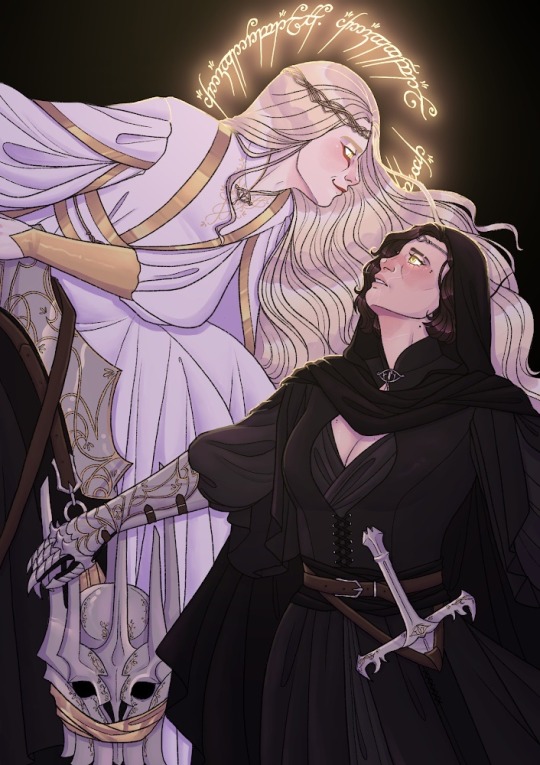
La Belle Dame Sans Merci~💍✨
#thinking of sauron as the femme fatale 'seducer of men' archetypical character#using his beauty to overpower/manipulate others into doing what he wants#a control freak aware of his assets and nonplussed about employing them for his gain#and the ringwraiths being souls falling under the spell of his temptations#maybe suspecting his true nature but too drunk on his sweetness and silver tongue and golden promises to do anything about it#*sounds of gnawing the table* it all makes sense in my head! i swear!!!#tolkien#lord of the rings#lotr#sauron#annatar#the one ring#nazgul#ringwraiths#oc#lotr oc#oc: duvain#my ocs#art#my art#merilles
2K notes
·
View notes
Text
Got a Ring from a giveaway

Anyway here's a picture of it on my hand

15K notes
·
View notes
Text
"A little more caution from you, that is no Trinket to be knocked off tables!"
#lord of the rings#hobbit#cat cosplay#cosplay#cats#kitty#cats in costumes#cat#cats of tumblr#aww#cat costume#fan art#tiktok#the one ring#humor#funny#cat things#fantasy
665 notes
·
View notes
Text

Creation of the One Ring.
#my art#silmarillion#silm art#the silm fandom#the silmarillion#tolkein#sauron#lotr#lotr fandom#the one ring
3K notes
·
View notes
Text
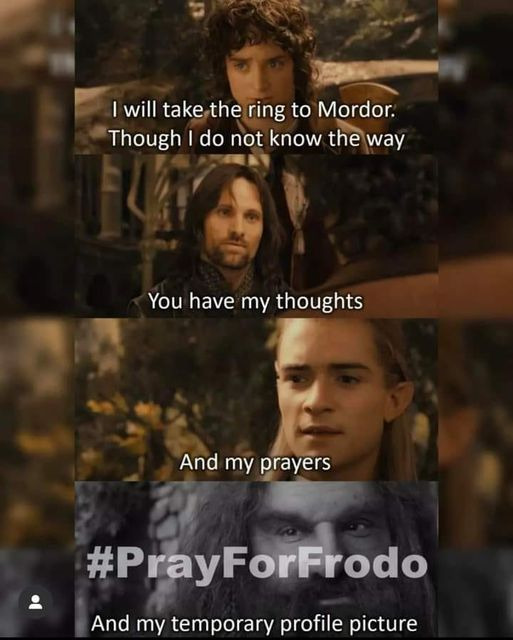
#thoughts and prayers#lord of the rings#the two towers#fellowship of the ring#return of the king#aragorn#boromir#token tolkien#gondor#mordor#ring of power#the one ring#sauron#gandalf#frodo#bilbo#samwise#merry#pippin#gollum
1K notes
·
View notes
Text
Are you afraid of Scary Bilbo?
Maybe, but ...
Does it change your view of Bilbo's entire character? Does it make you decide Bilbo is evil and corrupt at heart? Does it cause you to deride Bilbo for greed and selfishness in spite of all his heroic deeds?
No?
Then why do you do that to Boromir?
When Boromir tried to take the Ring from Frodo, it was his equivalent to the "HRRAAGHH!!" Bilbo moment.
Think back to the moment when Bilbo at Rivendell asked Frodo just to see the Ring, and in one fleeting instant Frodo saw, not the Bilbo he knew, but "a little wrinkled creature with a hungry face and bony groping hands." The flash of vision scared Frodo so bad he felt a desire to strike Bilbo. Frodo was terrified.
And then the next moment, Bilbo was himself again. The book itself describes the moment thus: "Bilbo looked quickly at Frodo 's face and passed his hand across his eyes. 'I understand now,' he said. 'Put it away! I am sorry: sorry you have come in for this burden; sorry about everything.'"
My friends, this is not that different from what happened with Boromir. He pressed Frodo to show him the Ring, and then became so intense about it that Frodo was terrified Boromir would take the Ring by force. Just like he'd been terrified of Scary Bilbo. Because, just as that was frighteningly not like the true Bilbo, this action was also not like the true Boromir.
Sadly, Frodo did not get the chance to hear Boromir's repentant apology and weeping once the moment of madness had passed. He got to hear Bilbo say, "I am sorry; sorry about everything!" But he did not get to hear Boromir say, "What have I said? What have I done?" nor his confession to Aragorn, "I tried to take the Ring from Frodo. I am sorry."
And what did Bilbo want the Ring for at that point in his life anyway? What would he do with its power? Get revenge on his petty relatives? Acquire riches and pipe-weed to last a lifetime? On the other hand, Boromir wanted the Ring as a final desperate hope to save his city, his home, his family, and his people. Being of a noble heart, he viewed the Ring as the only possible way to protect and defend others. It could be said that he was somewhat selfish and desired glory of his own through his efforts, but then again, wouldn't it be called selfishness for Bilbo to get revenge on the Sackville-Baggins, or store up wealth and riches for himself, or hoard all the pipe-weed he could want? Perhaps he would have had loftier thoughts and intentions to use it against Sauron - but then that would simply be a twin vision to Boromir's.
The point is, no one loses confidence in the character of Bilbo or his true-heartedness because of that one scary moment when he is almost overcome by lust for the Ring. And yet Boromir gets villainized for the same thing.
Say it with me, folks: "Boromir was no more of a villain in his temporary madness for the Ring than Scary Bilbo was!"
#lotr#i will stand for hero boromir#you may stick me full of arrows but i will die defending him#not with swords but with my words which are their own swords#lord of the rings#lotr fandom#boromir#lotr boromir#bilbo baggins#the hobbit#rivendell#frodo baggins#the one ring#lotr books#books and reading#book nerd#aragorn#aragorn son of arathorn#scary bilbo
875 notes
·
View notes
Text
Hello I’m here to talk about an opinion that isn’t so much unpopular because people don’t like it, but because it is splitting hairs and basically an argument based in semantics that sane people reasonably do not waste their time caring about it.
I am neither sane nor reasonable and therefore think about this a lot, and get ready to pull out a soapbox and type the Text Wall of China any time I hear people offhandedly contradict this opinion, and so I have come here today to die on this molehill, and write the over-long post of my dreams, because fuck it, it’s my blog.
Drumroll please:
Sauron is not The Lord of the Rings
The Lord of the Rings is the main antagonist though, so furthermore,
Sauron is not the main antagonist of The Lord of the Rings
I internally go insane every time someone says “Sauron, the eponymous Lord of the Rings” or “The antagonist never actually appears in Lord of the Rings” or uses Lord of the Rings as an penultimate example of having a flat ‘evil for evil’s sake’ villain. This is mostly in YouTube videos so I’m not calling out anyone here.
So who is the Lord of the Rings? Where do I get this shit? Why should anyone care?
I will tell you in far too much detail under this cut, because I told you I was gonna be extra about it and this is already long enough to inflict on my followers without their consent.
First and foremost, Frodo is not the Lord of the Rings either. Let’s get that out of the way. Gandalf explicitly tells us that in Many Meetings (the first chapter in Rivendell in Fellowship), when Pippin greets a newly awakened Frodo with quintessential Fool of a Took™️ swagger.
‘Hurray!’ cried Pippin, springing up. ‘Here is our noble cousin! Make way for Frodo, Lord of the Ring!’
‘Hush!’ Said Gandalf from the shadows at the back of the porch. ‘Evil things do not come into this valley; but all the same we should not name them. The Lord of the Ring is not Frodo, but the master of the Dark Tower of Mordor, whose power is again stretching out over the world! We are sitting in a fortress. Outside it is getting dark.’
So that’s my theory busted right off the bat! Gandalf straight up tells us the Lord of the Ring is Sauron (‘the master of the Dark Tower of Mordor’ which is Sauron).
But I already told you, this is a hair-splitting semantics-based theory! He said Sauron was the Lord of the Ring. Not the Lord of the RingS. Yes, this whole theory revolves around a single letter difference between the title of the series and Gandalf’s statement, WHAT OF IT?
But in all seriousness. Tolkien was a linguist. There was no way this choice was not deliberate, not on something so important to the narrative. And there is a very important difference between what he is referring to when he uses ‘The Ring” singular, and “The Rings” plural. The Ring that Frodo carried to Mordor has it’s singular nature highly emphasized by the language that surrounds it. THE definite article Ring, the ONE Ring. Just the One. Singular Singular Singular.
The Rings (plural) refers to the rings of power which Celebrimbor wrought, with Sauron’s help, but Sauron is objectively not the Lord of those rings. Not the three Elven ones at least, which he never touched and only suspects the location of. Without his One Ring he has no power over the Three, and a big problem with him regaining his Ring is that he would gain power over those rings, the ringbearers, and the safe realms that had been wrought with them, basically crippling those with the power to resist him.
Him NOT having the Ring, and therefore NOT having lordship over all the rings, is a pretty major plot point. Like, it’s not a reach to say Sauron not having the Ring is what drives the entire story. And he is NOT the Lord of the Rings without it.
And he never gains it, so is the whole series named after Sauron’s aspirations, that the main characters are trying to prevent? I mean, from an angle yes. But also no.
Because while Pippin and Gandalf’s exchange is the closest we come in the text to seeing the title, let me show you the only place within the covers that “The Lord of the Rings” is presented, at least in my beat up third hand 70’s edition. It may not be formatted like this in other editions, but I still think it says something about how we are supposed to read the title:

[Image ID: Masking tape can clearly be seen holding together my poor abused copy of Fellowship, open to the title page. THE LORD OF THE RINGS is written across the top of the page in all caps, directly below it is the Ring Poem, as if The Lord of the Rings is a the title not only of the series but of the poem. /.End ID]
The One Ring is the Lord of the Rings, not Sauron, who is the Lord of the Ring.
“What?” Say imaginary naysayers in my head, “How can a Ring be a Lord? And why does this matter, if Sauron is the Lord of the Ring, doesn’t that make him the Lord of the Rings by proxy? Why are you wasting your and my time making an argument about this?”
I’m glad you asked imaginary naysayer, let me speak to your first point. How can a ring be a Lord? Well, like any good first time speechwriter, I’ve turned to Miriam Webster, and asked it to define a word we already know, in this case ‘lord.’

[Image ID: Screenshot of the Miriam Webster definition of ‘lord.’ The ones that are relevant are 1: One having power and authority over others. 1a: A ruler by hereditary right or preeminence to whom service and obedience are due. And 1f: One that has achieved mastery or that exercises leadership or great power in some area /.End ID]
In the poem, it is the Ring that is spoken of as ruling, not Sauron. Sauron is actually listed in the same position as all the others who receive rings, “The Dark Lord on his Dark Throne” occupying the same place in the sentence structure as the “the Elven-kings under the sky” and “the Dwarf-lords in their halls of stone” and “Mortal Men doomed to die.” It is the One Ring, not Sauron, who rules them all, fulfilling our first definition “A ruler by hereditary right or preeminence.” In this case it would be by right of preeminence, or superiority. The One Ring outclasses the other rings and thus dominates them, binding them to obedience and service. Gandalf calls it “the Master-Ring” when it is first revealed for what it is in Bag-End with the words appearing from the flame.
The Ring has it’s own will too. It’s repeatedly stated to be in control of Gollum when Gandalf is first telling us about it. I’m literally so spoiled for quotes about this that I was paralyzed with indecisiveness over what to use but let’s keep it simple with this one. It’s from Gandalf explaining why Gollum didn’t have the Ring allowing Bilbo to come upon it in the chapter “Shadows of the Past” from Fellowship:
‘It was not Gollum, Frodo, but the Ring itself that decided things. The Ring left him.’
So if Sauron is the Lord of the Ring, and the Ring is the Lord of the Rings, isn’t he Lord of the Rings by proxy? Yes, when he has the Ring. But also being the ruler of a lord doesn’t make the title of that lord your title, if that makes sense. People don’t call Aragorn the Prince of Ithilien, that’s Faramir’s title, Aragorn is King of the Reunited Kingdoms, he rules Ithilien, sure, but by proxy. Ithilien reports to Faramir who reports to Aragorn (I should be calling him Elessar since I’m talking about him as king, but whatever). If Aragorn lost the ability to contact Faramir or Ithilian, he would still theoretically be king there but he would have no practical control, just like Sauron with the Rings of Power.
Why does this matter? It mostly doesn’t. It does not change anything practically in the story at all.
But it matters to me, because it might help change perspective on the antagonist of LotR. It’s the Ring. Sauron is a force in the world, one the Ring is closely allied with, and from whom many of the obstacles come, but the entity that our protagonist is really fighting on every page is the Ring.
If Gandalf were the main character, or Aragorn, or almost anyone else on Middle Earth, Sauron would be the Primary Antagonist. But they are not. Frodo is the Primary Protagonist, and his struggle is NOT against Sauron, it is against the Ring.
If destroying the Ring had not destroyed Sauron, would Frodo have kept fighting in this war? NO! He had his task, and once it was done he was done, even if the world ended afterwards. Everything is driven by the Ring. The threat to the Shire comes from the presence of the Ring, so Frodo takes the Ring to Rivendell. The danger of the Ring is not neutralized by it being brought to Rivendell, so he continues his journey to destroy it once and for all. He doesn’t fight Sauron, he fights the Ring. He fights with himself to keep going in spite of the despair it levels on him, the poisonous words it whispers in his ear, the physical toll it takes on his body. He fights Boromir and Sam (not to the extent he does in the movie, but still a bit) and Gollum over the Ring. He negotiates with Faramir over the Ring.
And the Ring is SUCH a more interesting and nuanced villain to struggle with than Sauron. Sauron is representative of a force in the world. He controls events but never appears, because he acts as the source of all evil, it’s representation on earth (at least now Melkor is in the Void), but it is far more interesting to watch the effect he has on others than deal directly with a character that is so obviously in the wrong in every way. Making Sauron a physical character in LotR is like making the Devil a present character in basically any piece of media that deals with evil.
Evil at its purest isn’t that interesting, because it contains no conflict. Leaving Sauron as an offscreen player leaves us to see characters that are not pure evil struggle with that conflict.
The fascinating thing about the Ring is that it has no power outside of what you give it. But given enough time even the best people, like Frodo, will end up losing themselves to it, as it whispers in your ear with your own voice.
I want to go ballistic when people point to LotR and say it has a one dimensional villain. EVERYONE’S OWN VIOLENCE, DESPAIR AND THIRST FOR POWER IS THE VILLAIN OF LORD OF THE RINGS! Brought to the fore by a small unassuming golden trinket which just happens to also be the titular Lord of the Rings.
Honestly “The Ring is the Villain of LotR change my mind” should be its own big long post with lots of quotes and shit, the fact that the Ring is The Lord of the Rings just being a small point in it.
But unless you are a specific type of interested in story structure and stuff none of this is at all meaningful and it really, really doesn’t matter, so I’m gonna go.
Thanks for coming with me on this dumb journey.
#tolkien#jirt#lotr#lord of the rings#the one ring#Sauron#jrr tolkien#Frodo#story structure#long post… even for me!#hot take#Gandalf#look#I’m sorry ok#this is so inconsequential and I say this as someone who likes meta
8K notes
·
View notes
Text
I precise it’s a piece of jewellery you can wear either daily or only for special occasions like weddings, you choose!And there isn’t a ‘none’ option because this isn’t a post for cowards.
#I’d wear Arwen’s necklace anyday and almost bought a replica at the medieval faire this summer but didn’t have the money#but also the leaf of lorien brooch is just gorgeous and I love wearing brooches#and I already have hair beads but my hair’s still too short to properly braid them in so it’ll wait#and for special occasions I’d totally give it a go to the ring of barahir#tolkien#the lord of the rings#tolkien polls#lotr poll#nenya#narya#vilya#the one ring#ring of barahir#leaf of lórien#jewellery#lotr jewellery
638 notes
·
View notes
Text
The fact that Sauron finds out what the real plan was when he senses Frodo wearing the Ring in Mordor ultimately adds to the satisfaction of his downfall. If Frodo hadn’t done that, Sauron wouldn’t have known why his land was suddenly collapsing and why his own form was withering away. But because of what happens, when the Ring is finally destroyed, Sauron knows exactly why and how. And his last thoughts are about how he was fooled, tricked, deceived, and totally outwitted by people with 1000x less power than him. That was actually the best punishment that Frodo could’ve given him: the blow to his ego that he deserved.
2K notes
·
View notes
Photo
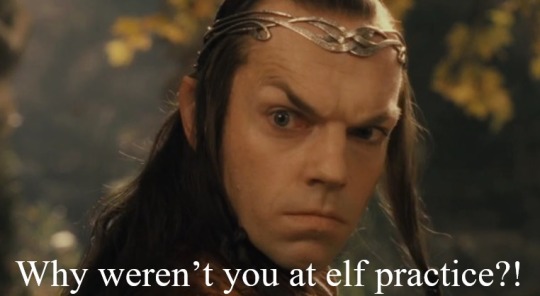
I can’t believe I haven’t done this before.
#rudolf#christmas#why weren't you at elf practice#lord of the rings#lotr#the ring speaks#tolkien#jrr tolkien#the one ring#elrond
4K notes
·
View notes
Text

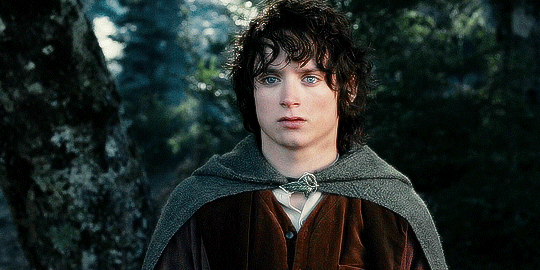

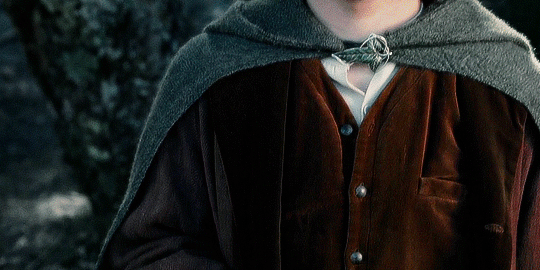
I wish the ring had never come to me. I wish none of this had happened.
So do all who live to see such times. But that is not for them to decide. All we have to decide is what to do with the time that is given us.
—Frodo and Gandalf, The Lord of the Rings, “The Fellowship of the Ring”
#The Lord of the Rings#The Fellowship of the Ring#Frodo Baggins#The One Ring#Elijah Wood#Frodo Cries
504 notes
·
View notes
Text

Obsessed with Tove Jansson’s depiction of gollum and bilbo. Why is gollum so big? Why is bilbo in a nightgown and nightcap? She is my hero for many reasons, one of which is being objectively hilarious.
#bookish#booklr#jrr tolkien#lotr#tolkien#the hobbit#bilbo baggins#gollum#misty mountains#tove jansson#moomin#the one ring
380 notes
·
View notes
Text
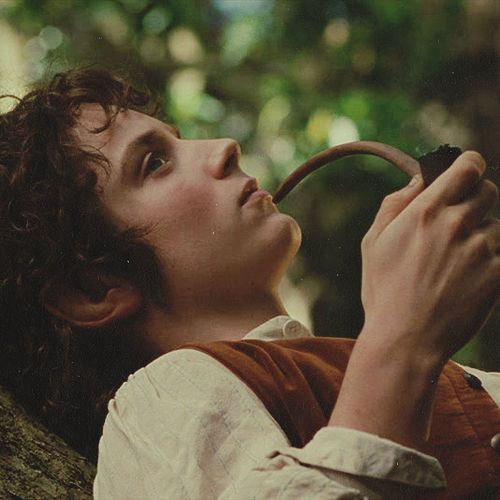



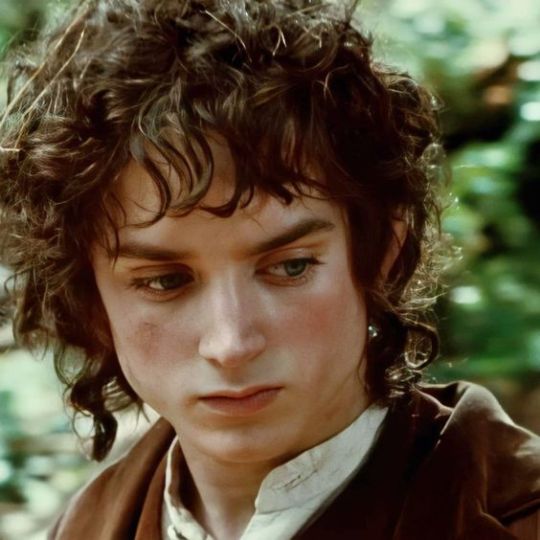
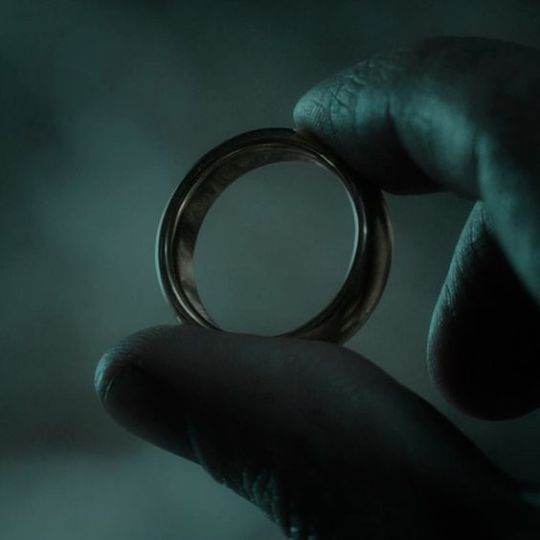
“I wish the ring had never come to me. I wish none of this had happened.”
#frodo baggins#lotr frodo#frodo my beloved#lord of the rings#lotr#lotredit#the lord of the rings#middle earth#the fellowship of the ring#tolkien#tolkien tag#tolkein#hobbits#the one ring
407 notes
·
View notes